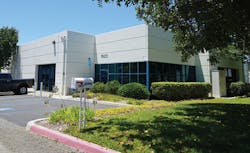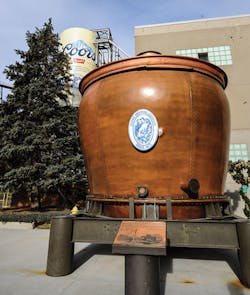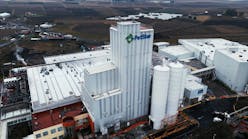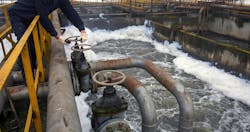Water Standard announces four new oil company contracts
Water Standard has been awarded four separate projects by various international oil companies. The company expanded its network and capabilities when it recently acquired Houston-based Monarch Separators.
The four recent project awards include:
- The supply of Monarch Separator’s MicroFloat Flotation System for SAGD operations in China. The system will be installed at the Zihua Treatment Station.
- A “Single Pack” Corrugated Plate Interceptor (CPI) Separator System with a polishing filter on the effluent discharge for a fuel oil plant in Brownsville, Texas.
- SCPI Packs for an offshore project in Angola, which Monarch Separators originally completed in 2013.
- A Hi-Flow Skid Package consisting of vessels and associated piping designed to treat produced water for a major international oil company’s offshore platform in the Gulf of Mexico.
All four projects are being manufactured in Water Standard’s newly remodeled, 22,000 square foot, ASME-certified fabrication facility. Work on the projects is expected to be executed through the first quarter of 2017.
Ellis Corporation appoints new president
Ellis Corporation, provider of industrial laundry, wastewater and heat recycling and reclamation equipment, has appointed Robert (Bob) H. Fesmire Jr. president. During his tenure at Ellis Corporation over the past two decades, Fesmire has served in various roles throughout the organization. Most recently, as the company’s executive vice president and chief operating officer, Fesmire oversaw a significant growth in sales as well as the acquisition of key personnel in the organization.
Fesmire’s great-great grandfather, Wynn Edward Ellis, founded the company in 1898. Robert Fesmire Sr. will continue as the company’s chairman and CEO.
US EPA, Enbridge reach settlement over 2010 oil spills
The U.S. Environmental Protection Agency and the Department of Justice announced a settlement with Enbridge Energy Limited Partnership and several related Enbridge companies to resolve claims stemming from its 2010 oil spills in Marshall, Mich., and Romeoville, Ill. Enbridge has agreed to spend at least $110 million on a series of measures to prevent spills and improve operations across nearly 2,000 miles of its pipeline system in the Great Lakes region. Enbridge will also pay civil penalties totaling $62 million for Clean Water Act violations - $61 million for discharging at least 20,082 barrels of oil in Marshall and $1 million for discharging at least 6,427 barrels of oil in Romeoville.
In addition, the proposed settlement will resolve Enbridge’s liability under the Oil Pollution Act, based on Enbridge’s commitment to pay over $5.4 million in unreimbursed costs, as well as all future removal costs, incurred by the government in connection with cleanup of the Marshall spill. The recent settlement includes an extensive set of specific requirements to prevent spills and enhance leak detection capabilities throughout Enbridge’s Lakehead pipeline system, a network of 14 pipelines spanning nearly 2,000 miles across seven states.
Evoqua to provide water system for Holland, MI, energy park
Evoqua Water Technologies has been chosen to provide its Vantage® Series membrane-based boiler feedwater makeup system as well as water screens and stop gates for the new Holland (Mich.) Board of Public Works (BPW) combined cycle natural gas power plant.
The project will provide 145 megawatts of power to approximately 75,000 Western Michigan customers, generating significantly lower emissions than the previous coal-fired plant. It is scheduled for substantial completion by the end of 2016.
The new system is based on a Vantage PTI pretreatment packaged system paired with two Vantage series double-pass M284 reverse osmosis systems. These systems have been specifically customized for the site. Effluent from the membrane system is polished using CDI-LX™ Continuous Deionization Systems using Evoqua’s unique Ionpure® modules. The products will help prevent debris from Lake Macatawa from entering the power plant’s three water intake channels.
Anue Water Technologies expands to new facility, consolidates manufacturing
Anue Water Technologies Inc. has completed its relocation to a new manufacturing facility in Oceanside, Calif., consolidating all manufacturing under one roof.
The move was due to increased demand for the company’s municipal product line, together with the company’s entry into the industrial wastewater market. These developments created the opportunity to consolidate manufacturing in the U.S. with a customized facility that includes infrastructure to enable world class design, build and quality processes.
MillerCoors reduces water use, brewery waste
MillerCoors released its 2016 Sustainability Report, which provides a comprehensive review of the company’s 2015 efforts in the areas of water reuse and environmental stewardship.
Some of the company’s 2015 sustainability accomplishments include: reducing water usage within its breweries by more than 128 million gallons; reducing its water-to-beer ratio across all direct operations to 3.29:1.00 - a 2.1 percent reduction from 2014; reducing greenhouse gas (GHG) emissions by 18 percent compared to 2010 - a 4.9 percent decrease from 2014; and achieving landfill-free operations at eight major breweries and two major manufacturing facilities.
ADS expands manufacturing capacity at Sebring, Fl, Location
Advanced Drainage Systems Inc., manufacturer of water management products and solutions for commercial, residential, infrastructure and agricultural applications, has expanded production capacity in Florida to serve demand in the state.
The increased production capacity at the Sebring location will be focused on manufacturing the company’s N-12 product line. The company has recently added delivery capability to meet customer service needs and will continue to distribute all of its pipe and Allied Products from this location, which primarily serves the South Florida market.
Ecolab makes equity investment in Aquatech International
Ecolab Inc., the parent company of Nalco Water, has made a minority equity investment in Aquatech International. Based in Canonsburg, Pa., Aquatech is a privately owned water treatment company. Aquatech also provides a suite of technologies for the reuse and recycling of water in the most demanding of industrial settings.
Through this relationship, Nalco Water, an industrial water treatment company, increases its capabilities to provide customers with comprehensive end-to-end solutions to minimize net water usage and maximize process performance and productivity.
ATCO provides industrial water treatment in Alberta
ATCO is now offering water treatment solutions to customers in Alberta’s Industrial Heartland. The company previously entered into a long-term commercial arrangement with Air Products Canada Ltd. to provide water treatment service for the company’s hydrogen facility near Fort Saskatchewan and is now capable of offering the service across the region.
The company is developing the infrastructure to provide treated water through a multi-user water system. With treated water delivered directly to their facility, customers benefit from substantially improved industrial water quality and can free up land on their sites previously dedicated to water treatment.
Within the past seven years, the company has completed more than $70 million in projects to expand its industrial water system. This water treatment agreement builds upon ATCO’s existing contract with Air Products Canada Ltd. to provide industrial water to the company’s hydrogen facility. The treatment service is expected to commence in the third quarter of 2016. IWW OriginClear upgrades ultrafiltration system at Otter Tail Power Company in North Dakota
OriginClear Inc.’s wholly-owned subsidiary, Dallas-based Progressive Water Treatment Inc. (PWT), completed the installation and successful launch of a twin 300-gallon-per-minute ultrafiltration membrane system for Otter Tail Power at its Coyote Station in Beulah, North Dakota. This half-million dollar collaboration with Omaha-based Consolidated Water Solutions features an ultrafiltration membrane system that treats surface water before it enters the reverse osmosis membrane system, which supplies clean water to the steam generators.
For PWT, this is the third large project for this year. In January, Minnesota-based public utility Xcel Energy awarded PWT a $1.8 million contract for a boiler feedwater treatment system that is expected to be installed by the end of the third quarter 2016. In February, a power plant in the Northeast awarded PWT a $700,000 contract to upgrade and expand a large boiler feedwater treatment system that increased the existing plant’s capacity from 400 to 800 gallons per minute (GPM).
Designed to process up to 860,000 gallons per day, the ultrafiltration membrane system replaces an existing cold lime softener, clear-well and multiple pressure filters. As a result, it reduces the overall system cost by saving money on chemicals and operating labor. Additionally, the ultrafiltration membrane system decreases sludge and wastewater and improves the quality of the water entering the reverse osmosis membrane system, enabling better overall system performance.
NSF International, ASHRAE to advance knowledge of building water health
Global public health organization NSF International and ASHRAE have signed a memorandum of understanding (MOU) dedicated to protecting public health by establishing safe management practices for building water systems. These systems include cooling towers, air conditioning units for large buildings, hot tubs, large complex water systems (in hotels, hospitals, cruise ships and institutions) and decorative fountains, which can be attributed to public health concerns such as Legionella.
Under the terms of the MOU, NSF International will provide its 70-plus years of water industry expertise and ASHRAE will leverage its building systems expertise to jointly develop NSF 444: Prevention of Injury and Disease Associated with Building Water Systems.
NSF 444 is the first NSF standard to address building water quality. U.S. public health and environmental organizations at the state and federal levels, members of ASHRAE, private healthcare systems, academia and those in the water industry are participating on the joint committee to develop this standard, expected to be released in 2017.



